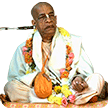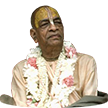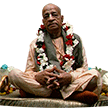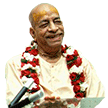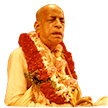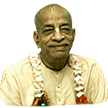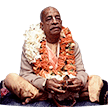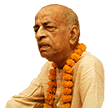Old Age - an essential subject: Difference between revisions
(Created page with "Category:Essential Subjects <!----------------------- edit below this line -----------------------> <!------------------------ begin introduction text below --------------...") |
(Vanibot #0041: Moves Choose Another box to the end) |
||
| Line 2: | Line 2: | ||
<!----------------------- edit below this line -----------------------> | <!----------------------- edit below this line -----------------------> | ||
<!------------------------ begin introduction text below ------------------------> | <!------------------------ begin introduction text below ------------------------> | ||
In this age especially, in Kali-yuga we become very, very slow in spiritual progress, although that is our main business. But on account of this Kali-yuga, we are all very, very slow. We think that "Spiritual cultivation is meant for old age. Now let us enjoy our life in this material world." That is our wrong conception of life. What do you mean by old age? Nearing death. So who can guarantee that he is not nearing death? Everyone is nearing death at every moment. Why should you wait for old age? That is manda-mater, bad intelligence. We should know that death may take place at any moment. Therefore every one of us are already old. We generally understand that old age means nearing death, but who can guarantee that there is no death at any moment?. Therefore śāstra says tūrṇaṁ yateta anu-mṛtyu pateta yāvad, Before meeting our next death, we should endeavor so dexterously that we complete our Kṛṣṇa consciousness before our death comes. That is intelligence - knowing that we are already very old, and death is very near. | |||
Srila Prabhupada's books, lectures, conversations and letters offer a comprehensive presentation of this essential subject as seen in the Vaniquotes '''[[Vaniquotes:Category:Old Age|Old Age]]''' category. An introduction from his books is given below in the following | Srila Prabhupada's books, lectures, conversations and letters offer a comprehensive presentation of this essential subject as seen in the Vaniquotes '''[[Vaniquotes:Category:Old Age|Old Age]]''' category. An introduction from his books is given below in the following 10 quotes. | ||
<!-------- end introduction text and don't touch next three lines ---------> | <!-------- end introduction text and don't touch next three lines ---------> | ||
== Quotes from Srila Prabhupada's books == | == Quotes from Srila Prabhupada's books == | ||
<!----------------- edit quote boxes below this line -----------------> | <!----------------- edit quote boxes below this line -----------------> | ||
{{VaniQuotebox| | {{VaniQuotebox|A devotee knows that after death he is going back home, back to Godhead; therefore he has no fear of death. Thus instead of depressing a devotee, advanced age helps him become fearless and thus happy| Apparently a devotee may grow old, but he is not subjected to the symptoms of defeat experienced by a common man in old age. Consequently, old age does not make a devotee fearful of death, as a common man is fearful of death. When jarā, or old age, takes shelter of a devotee, Kālakanyā diminishes the devotee's fear. A devotee knows that after death he is going back home, back to Godhead; therefore he has no fear of death. Thus instead of depressing a devotee, advanced age helps him become fearless and thus happy. '''(Śrīmad-Bhāgavatam 4.27.24)'''}} | ||
{{VaniQuotebox| | {{VaniQuotebox|A sane person, by attaining old age, will become fearful of death. Foolish people engage in material activities as if they will live forever and enjoy material advancement, but actually there is no material advancement| Although Kālakanyā means invalidity or old age, Yavana-rāja wanted to serve Kṛṣṇa by introducing Kālakanyā everywhere. Thus a sane person, by attaining old age, will become fearful of death. Foolish people engage in material activities as if they will live forever and enjoy material advancement, but actually there is no material advancement. Under illusion people think that material opulence will save them, but although there has been much advancement in material science, the problems of human society—birth, death, old age and disease—are still unsolved. '''(Śrīmad-Bhāgavatam 4.27.27)'''}} | ||
{{VaniQuotebox| | {{VaniQuotebox|All kinds of happiness disappear in old age. Consequently, no one likes old age, or jara. Thus Jara, as the daughter of Time, is known as a most unfortunate daughter. She was, however, at one time accepted by a great king, Yayati|All kinds of happiness disappear in old age. Consequently, no one likes old age, or jarā. Thus Jarā, as the daughter of Time, is known as a most unfortunate daughter. She was, however, at one time accepted by a great king, Yayāti. Yayāti was cursed by his father-in-law, Śukrācārya, to accept her. When Śukrācārya's daughter was married to King Yayāti, one of her friends named Śarmiṣṭhā went with her. Later King Yayāti became very much attached to Śarmiṣṭhā, and Śukrācārya's daughter complained to her father. Consequently, Śukrācārya cursed King Yayāti to become prematurely old. '''(Śrīmad-Bhāgavatam 4.27.20)'''}} | ||
{{VaniQuotebox| | {{VaniQuotebox|As far as the material body is concerned, there are six "waves," or symptomatic material conditions: hunger, thirst, lamentation, bewilderment, old age and death. The liberated soul is never concerned with these six physical interactions|Although the Lord is connected with the material world, He is always situated in His spiritual energy and is always unattached to the functions of the material world. As far as the material body is concerned, there are six "waves," or symptomatic material conditions: hunger, thirst, lamentation, bewilderment, old age and death. The liberated soul is never concerned with these six physical interactions. '''(Śrīmad-Bhāgavatam 4.17.29)'''}} | ||
{{VaniQuotebox| | {{VaniQuotebox|As the embodied soul continuously passes, in this body, from boyhood to youth to old age, the soul similarly passes into another body at death|As the embodied soul continuously passes, in this body, from boyhood to youth to old age, the soul similarly passes into another body at death. The self-realized soul is not bewildered by such a change." Such verses from the Bhagavad-gītā or any other Vedic literature give valuable instructions on the occasion of someone's passing away. By discussing such instructions from the Bhagavad-gītā or Śrīmad-Bhāgavatam, a sober man can certainly understand that the soul never dies but rather passes from one body to another. '''(Caitanya-caritāmṛta, Ādi-līlā 16.23)'''}} | ||
{{VaniQuotebox| | {{VaniQuotebox|At the fag end of life, when the invalidity of old age attacks a man, his body becomes useless for all purposes|At the fag end of life, when the invalidity of old age attacks a man, his body becomes useless for all purposes. Therefore Vedic training dictates that when a man is in his boyhood he should be trained in the process of brahmacarya; that is, he should be completely engaged in the service of the Lord and should not in any way associate with women. When the boy becomes a young man, he marries between the ages of twenty and twenty-five. When he is married at the right age, he can immediately beget strong, healthy sons. '''(Śrīmad-Bhāgavatam 4.28.3)'''}} | ||
{{VaniQuotebox| | {{VaniQuotebox|Because a devotee rigidly follows the instructions of Narada Muni, he has no fear of old age, disease or death| Because a devotee rigidly follows the instructions of Nārada Muni, he has no fear of old age, disease or death. Apparently a devotee may grow old, but he is not subjected to the symptoms of defeat experienced by a common man in old age. Consequently, old age does not make a devotee fearful of death, as a common man is fearful of death. When jarā, or old age, takes shelter of a devotee, Kālakanyā diminishes the devotee's fear. A devotee knows that after death he is going back home, back to Godhead; therefore he has no fear of death. '''(Śrīmad-Bhāgavatam 4.27.24)'''}} | ||
{{VaniQuotebox| | {{VaniQuotebox|Encaged within the body, the living being accepts Kalakanya, old age, just before death|Encaged within the body, the living being accepts Kālakanyā, old age, just before death. Yavaneśvara is the emblem of death, Yamarāja. Before going to the place of Yamarāja, the living entity accepts Jarā, old age, the sister of Yamarāja. One is subjected to the influence of Yavana-rāja and his sister due to impious activity. Those who are in Kṛṣṇa consciousness and are engaged in devotional service under the instructions of Nārada Muni are not subjected to the influence of Yamarāja and his sister Jarā. '''(Śrīmad-Bhāgavatam 4.29.22)'''}} | ||
{{VaniQuotebox|Family attraction is so strong that even if one is neglected by family members in his old age, he cannot give up family affection, and he remains at home just like a dog|Family attraction is so strong that even if one is neglected by family members in his old age, he cannot give up family affection, and he remains at home just like a dog. In the Vedic way of life one has to give up family life when he is strong enough. It is advised that before getting too weak and being baffled in material activities, and before becoming diseased, one should give up family life and engage oneself completely in the service of the Lord for the remaining days of his life. '''(Śrīmad-Bhāgavatam 3.30.14)'''}} | |||
{{VaniQuotebox|Foolish people accept unhappiness as happiness; therefore the King of the Yavanas decided to attack such foolish people imperceptibly by old age, disease, and ultimately death| Foolish people accept unhappiness as happiness; therefore the King of the Yavanas decided to attack such foolish people imperceptibly by old age, disease, and ultimately death. Of course, after death there must be birth; therefore Yavana-rāja thought it wise to kill all the karmīs through the agency of Kālakanyā and thus try to make them aware that materialistic advancement is not actually advancement. '''(Śrīmad-Bhāgavatam 4.27.29)'''}} | |||
<!----------------- edit quote boxes above this line -----------------> | <!----------------- edit quote boxes above this line -----------------> | ||
| Line 30: | Line 34: | ||
'''Old Age - [[Vaniquotes:Category:Old Age|explore more within this category]]'''. | '''Old Age - [[Vaniquotes:Category:Old Age|explore more within this category]]'''. | ||
{{EsentialSubjectTotal}} | {{EsentialSubjectTotal}} | ||
<div style="float:left;"> | |||
{{EssentialSubjectnav}} | |||
</div> | |||
__NOTOC__ | __NOTOC__ | ||
__NOEDITSECTION__ | __NOEDITSECTION__ | ||
Latest revision as of 17:02, 22 November 2020
In this age especially, in Kali-yuga we become very, very slow in spiritual progress, although that is our main business. But on account of this Kali-yuga, we are all very, very slow. We think that "Spiritual cultivation is meant for old age. Now let us enjoy our life in this material world." That is our wrong conception of life. What do you mean by old age? Nearing death. So who can guarantee that he is not nearing death? Everyone is nearing death at every moment. Why should you wait for old age? That is manda-mater, bad intelligence. We should know that death may take place at any moment. Therefore every one of us are already old. We generally understand that old age means nearing death, but who can guarantee that there is no death at any moment?. Therefore śāstra says tūrṇaṁ yateta anu-mṛtyu pateta yāvad, Before meeting our next death, we should endeavor so dexterously that we complete our Kṛṣṇa consciousness before our death comes. That is intelligence - knowing that we are already very old, and death is very near.
Srila Prabhupada's books, lectures, conversations and letters offer a comprehensive presentation of this essential subject as seen in the Vaniquotes Old Age category. An introduction from his books is given below in the following 10 quotes.
Quotes from Srila Prabhupada's books
Old Age - explore more within this category.
Vanipedia has now over 903 introductory articles compiled from Srila Prabhupada's books under the series titled Essential Subjects. All these articles can be seen in the Table of Content on the right side of this article and also here in this Umbrella Category. Browse through them to relish the breadth and depth of Srila Prabhupada's teachings - There is a subject for everyone.
